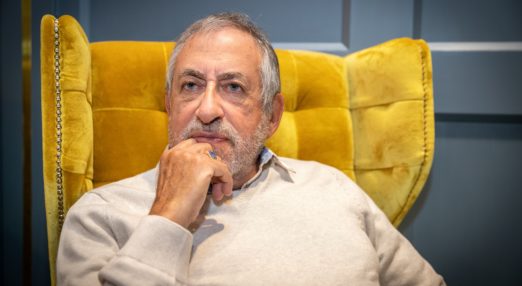Stuart’s Story
Stuart experienced a devasting loss 10 years ago that changed everything in an instant. After receiving support from Cruse, Stuart shares his story.
Ten years ago, my life was shattered when my eldest son died by suicide at the age of 32. There had been no warning signs, no history of mental health struggles that we were aware of—just a devastating loss that changed everything in an instant. It felt like a bomb had exploded in our family, leaving behind pain, confusion, and an unbearable emptiness.
In the aftermath, supporting each other became incredibly difficult while we were all struggling so deeply ourselves. I was self-employed and studying for a career change at the time, but grief made it impossible to function. I had to take two months off from work and my studies, leaving us financially strained. Friends we had known for years started avoiding us, unsure of what to say or how to be there. We felt isolated, as though the only people who truly understood were the ones going through it alongside us—our own family.
It was my GP who first suggested Cruse. I remember sitting in that appointment, barely able to process what he was saying, unable to even make the call myself. My doctor dialed the Cruse helpline and then passed the phone to me. That was the first time I had spoken to anyone outside of my family about how I felt. It was a turning point.
When I met with the Cruse volunteer there was no pressure, no judgment—just quiet understanding and compassion. I could say exactly what was in my heart, things I was too afraid to share with my wife or my other sons, who were also drowning in their own grief. Over the course of my sessions, I slowly learned how to process my pain, how to exist in a world without my son.
The volunteers at Cruse helped me understand that grief doesn’t have an endpoint—but that I didn’t have to carry it alone. They showed me how to rebuild my life, how to redefine my relationships with my family, and most importantly, how I could still have a relationship with my son, even after his death.
A decade later, the impact of that support remains profound. Cruse took my grief seriously. They gave me the space to feel, to speak, to be heard. With time and their help, I learned to live again—not by forgetting, but by integrating my grief into a meaningful life. I learned to take care of myself and those around me, to find joy again without guilt. Three years after my son’s death, I made a decision that changed my life: I began training as a counsellor. At the same time, I started volunteering for Cruse, hoping to give others the peace and support I had found in my darkest moments.
If there is one thing I wish everyone knew about grief, it is this: grief is the price we pay for love. It is painful, raw, and life-changing—but it does not have to be carried alone. Help is out there, and reaching out is the first step toward healing.
-

Men and grief
Everyone’s grief is unique, but we sometimes find that men and women react differently when someone dies, and that men's health can be particularly affected.
